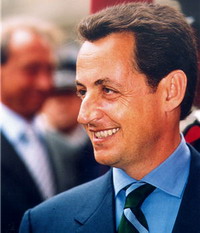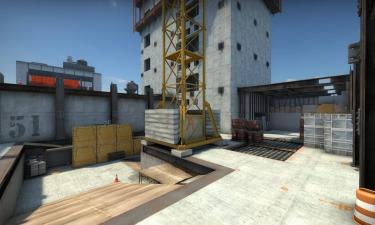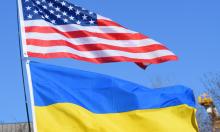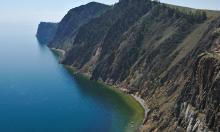Nicolas Sarkozy to visit China on human rights question
Human rights question is notably missing from a list of five priority areas that France wants to discuss during Nicolas Sarkozy's first presidential visit to China at the end of this week.

Unlike his German counterpart, who infuriated Beijing by hosting the Dalai Lama in September, Sarkozy appears to be opting for a more softly softly approach - despite pledges before he took power in May that he would stand by "all those who are persecuted by tyrannies, by dictatorships."
French officials insist that Sarkozy will raise human rights when he meets with Chinese President Hu Jintao and the prime minister, Wen Jiabao. Sarkozy's foreign minister already pinpointed specific cases of concern when he visited China last month, French officials say.
Sarkozy "is in the habit of raising the issue of human rights wherever he goes," his spokesman, David Martinon, said Thursday.
Human rights activists are vociferously critical of China's heavy use of the death penalty, imprisonment of political dissidents and labor activists, and curbs on freedom of speech. Paris-based advocacy group Reporters Without Borders appealed to Sarkozy to raise with his Chinese hosts the cases of 33 journalists and 50 cyberdissidents imprisoned there.
But Rama Yade, Sarkozy's minister for human rights who accompanied him on a visit to the United States, is not part of his delegation for China - even though Yade's office said barely a week ago that it looked likely she would go.
And a French official who briefed reporters on Sarkozy's trip listed the five priorities for discussion as the environment, commercial ties, Africa, China's international role and bilateral concerns.
Sarkozy suggested Thursday that China and other emerging powers be invited to attend the 2008 G-8 summit in Japan.
"I don't see how one can decide the various balances of the world without China and without India," Sarkozy told a group of French and Japanese business leaders, according to a text made public. "I don't see how one can say to the Chinese that we don't accept your attitude without inviting them to the table."
Sarkozy will press China over its currency, the yuan, which some critics say is undervalued, making Chinese exports unfairly cheap. The French official said Sarkozy wants a "more equitable, fairer" balance between the yuan and the U.S. dollar, the euro and the Japanese yen.
"There is a real problem," said the official, who spoke on condition that he not be identified by name.
The official said, while refusing to give details, that talks are still ongoing about possible Chinese contracts for European planemaker Airbus, which is headquartered in France, and French state-run nuclear giant Areva SA. Areva has said it is negotiating to sell two third-generation EPR pressurized water reactors.
U.S., European and Russian suppliers of nuclear power technology have all been vying to land contracts in China, where as many as 32 nuclear plants are expected to be built by 2020 as it tries to meet surging power demands while cutting emissions and reducing reliance on imported oil.
France sees a market in China for "clean" technologies. And if China refuses to take steps to curb its pollution and emissions, Sarkozy has floated the idea of a possible punitive tax on Chinese imports.
"If the carrot is not sufficient ... there is always the stick," said the official. "The tax is still there like a Damocles sword."
Sarkozy lands Sunday in Xi'an, where he will visit the famed terracotta army, and he has a dinner that night in Beijing with Hu. The two leaders hold more meetings Monday, before Sarkozy flies to Shanghai on Tuesday and then leaves for Paris that night.
Subscribe to Pravda.Ru Telegram channel, Facebook, RSS!





